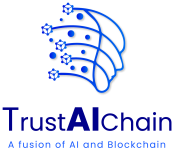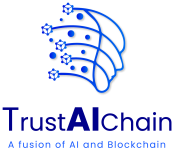In recent years, mental health has become a critical topic of discussion, with individuals and organizations recognizing the importance of accessible, affordable, and secure mental health services. However, the stigma surrounding mental health, coupled with issues like lack of access and data privacy concerns, still deters many people from seeking help. Artificial intelligence (AI) chatbots and blockchain technology are a powerful duo that has the potential to revolutionize mental health care by providing accessible, confidential, and personalized therapy.
The Rise of AI Chatbots in Mental Health
AI chatbots have emerged as a game-changer in mental health care, offering 24/7 support to individuals who might otherwise struggle to access traditional therapy. These intelligent programs simulate human-like conversations, providing users guidance, coping strategies, and emotional support. Here are some key ways AI chatbots are making a difference:
1. Accessibility
One of the biggest barriers to mental health care is accessibility. Traditional therapy often requires in-person appointments, long waiting times, and high costs. AI chatbots, on the other hand, are:
- Available 24/7: Users can access support anytime, making them ideal for those with irregular schedules or in crises.
- Affordable: Many chatbot-based services are free or cost significantly less than traditional therapy sessions.
- Geographically Unrestricted: Individuals in remote areas or underserved communities can access mental health support without traveling long distances.
2. Personalization
AI chatbots leverage machine learning algorithms to analyze user inputs and provide tailored responses. By understanding an individual’s emotions, behavior patterns, and needs, these chatbots can:
- Suggest personalized coping mechanisms.
- Monitor progress over time.
- Adapt their responses to provide better support with each interaction.
3. Anonymity
For many people, the fear of judgment or stigma prevents them from seeking mental health care. AI chatbots offer a safe and anonymous space where users can express their feelings without fear of judgment.
4. Bridging the Gap
While AI chatbots are not a replacement for professional therapists, they serve as a valuable bridge for those who need immediate support or are hesitant to seek traditional therapy. They can also act as a supplementary tool for individuals already in therapy.

The Privacy Challenge in Mental Health Tech
While AI chatbots are transforming mental health care, they raise critical concerns about data security and privacy. Mental health data is highly sensitive, and breaches can have devastating consequences for individuals. Concerns include:
- Unauthorized Access: Without robust security measures, mental health data could be accessed by unauthorized parties.
- Data Exploitation: Some companies may use user data without explicit consent for advertising or other purposes.
- Stigma and Discrimination: Leaked mental health information could lead to stigma, discrimination, or even job loss.
This is where blockchain technology steps in to address these challenges.
Blockchain: A Solution for Confidential Therapy
Blockchain’s decentralized, secure, and transparent nature makes it ideal for safeguarding mental health data. Here’s how it enhances confidentiality and trust in AI-powered therapy:
1. Data Encryption and Security
Blockchain uses advanced encryption methods to store data securely. Each piece of information is stored as a block, and these blocks are linked together in an immutable chain. This ensures:
- Data Integrity: Once data is recorded, it cannot be altered or deleted, preventing tampering.
- Secure Access: Only authorized parties with cryptographic keys can access the data.
2. Decentralization
Traditional databases store information in a centralized location, making them vulnerable to hacks. Blockchain distributes data across a network of nodes, significantly reducing the risk of breaches.
3. User Control
With blockchain, users retain full control over their data. They can decide who has access to their information and for what purpose. Smart contracts and self-executing agreements can automate this process, ensuring that data is only shared with explicit user consent.
4. Anonymity and Privacy
Blockchain enables anonymous transactions, which can be applied to mental health records. Users can seek help without revealing their identity, ensuring privacy and reducing the fear of stigma.

Combining AI Chatbots and Blockchain: The Future of Mental Health Care
The integration of AI chatbots and blockchain technology has the potential to redefine mental health care. Here’s what the future might look like:
1. Secure and Personalized Therapy
AI chatbots can provide personalized support, while blockchain ensures that user data remains secure and confidential. For example:
- Users can interact with a chatbot, securely storing their conversations on a blockchain.
- Smart contracts can automate processes like connecting users to professional therapists if needed, ensuring a seamless transition from chatbot support to human care.
2. Global Access to Mental Health Support
Blockchain can facilitate the creation of decentralized mental health platforms that are accessible worldwide. These platforms can:
- Connect users with AI chatbots and therapists regardless of geographic location.
- Use cryptocurrency-based payment systems to make services affordable and accessible in low-income regions.
3. Improved Trust and Transparency
By leveraging blockchain, mental health platforms can build trust with users. Transparent practices, such as showing how data is used and ensuring user control, can encourage more people to seek help.
4. Research and Innovation
Securely anonymized data stored on blockchains can be used for research purposes. This can help improve AI algorithms, leading to more effective mental health interventions while maintaining user privacy.

Challenges and Ethical Considerations
While the future is promising, there are challenges to address:
- Ethical AI Use: Ensuring AI chatbots provide accurate and compassionate responses without perpetuating biases.
- Blockchain Accessibility: Making blockchain technology user-friendly for non-technical individuals.
- Regulatory Compliance: Navigating privacy laws like GDPR and HIPAA to ensure compliance while leveraging blockchain and AI.
Summary
Combining AI chatbots and blockchain technology can revolutionize mental health care. By making therapy more accessible, secure, and personalized, these technologies can break down barriers and empower individuals to seek the help they need without fear of stigma or data breaches.
As we move forward, we must address challenges and prioritize ethical practices to ensure these innovations benefit everyone. The future of mental health is digital, and with the right tools and safeguards, it can be a future where care is accessible, confidential, and effective for all.
If you found this post insightful, share it with others to spread awareness about how technology reshapes mental health care.







